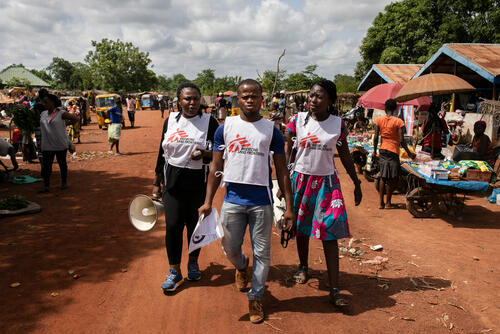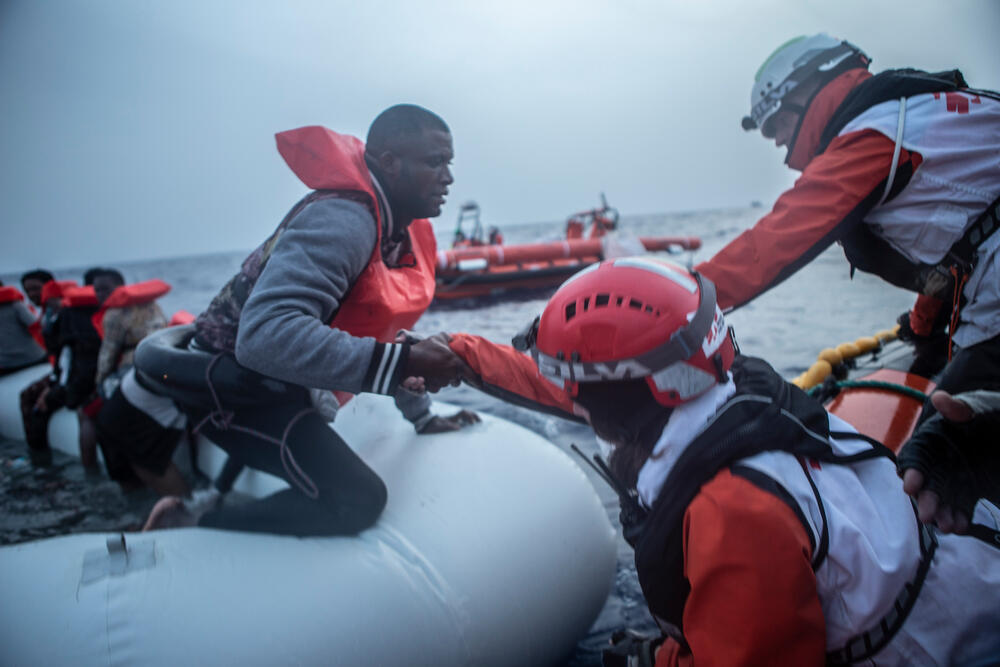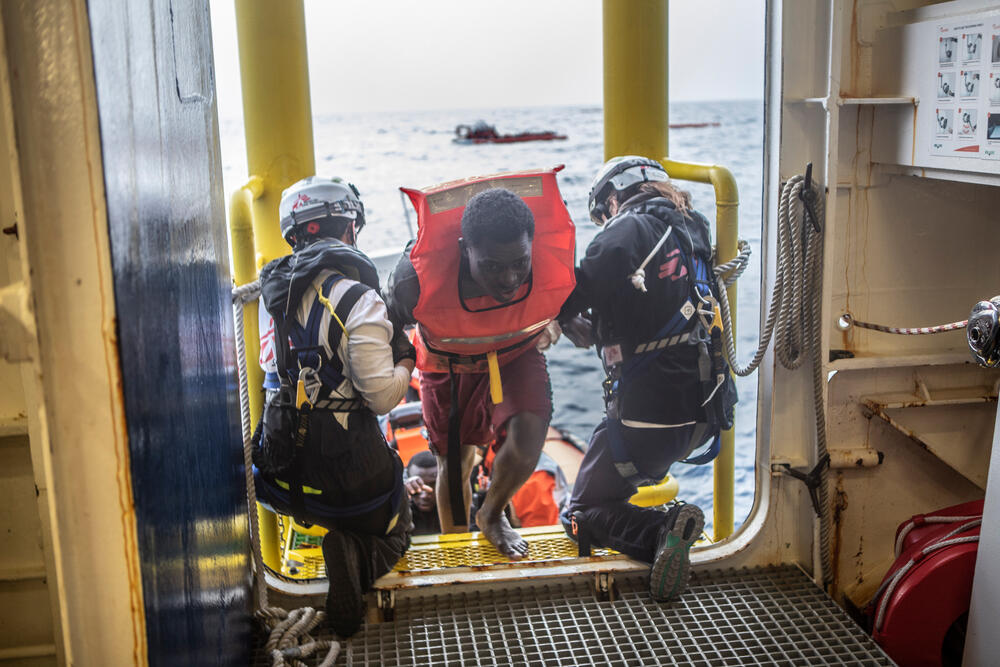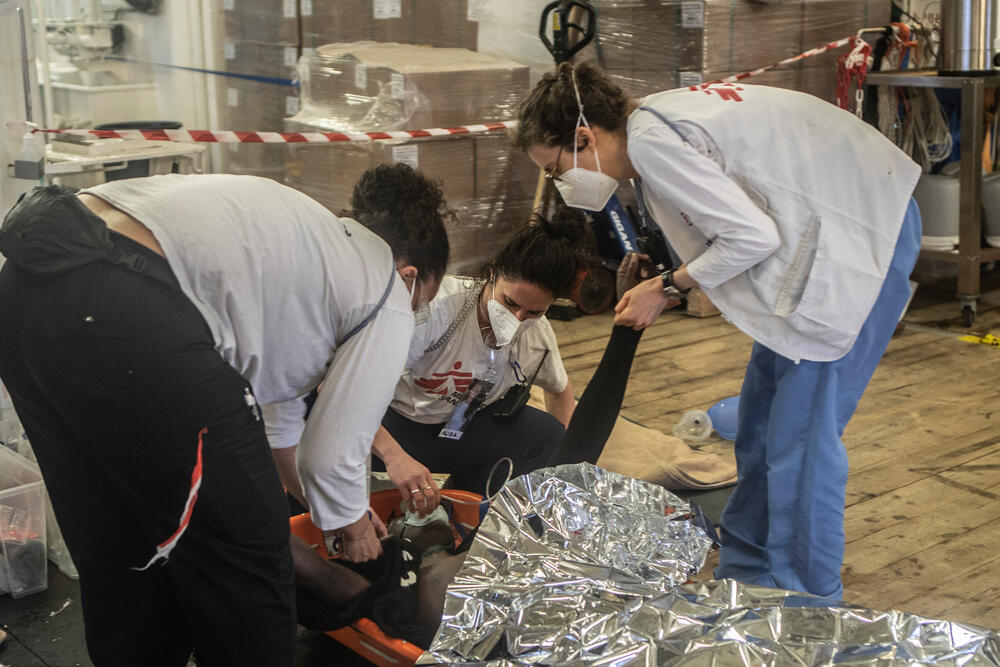Mediterranean search and rescue: Over 100 deaths at sea in less than a week
More than 100 people have lost their lives in the Central Mediterranean Sea in the past week as a result of the EU and member states’ deadly policies towards refugees and migrants.
In the same week, at least 130 people were intercepted and forcibly returned to Libya, where they almost certainly be subjected to the ill-treatment, abuse and torture that has been widely documented in Libyan detention centres.
Médecins Sans Frontières/Doctors Without Borders (MSF) condemns the negligence of Italy and Malta to assist boats in distress, and the indifference of the EU and its member states to the rising death toll and ongoing violation of human rights in the Mediterranean Sea.
“When will Europe put an end to this and embrace its responsibilities to protect lives instead of borders?”
These awful deaths and forced returns happened even as those same European leaders and institutions express their deepest solidarity with refugees fleeing war-torn countries.
“The current state of migration policies in Europe is a real cause for alarm,” says Sophie McCann, MSF UK Advocacy Officer.
“While our teams in the Central Mediterranean witness negligence and indifference towards people who are prepared to risk their lives in search of sanctuary, here we are horrified to see the UK government show the same disdain for people seeking safety by introducing cruel and potentially lethal migration policies in its Nationality and Borders Bill.
“Instead of criminalising, detaining, and pushing back vulnerable men, women and children, governments must introduce fair and kinder migration policies to prevent such losses of life at sea.”
Critical rescue at sea
The team onboard MSF’s search and rescue vessel Geo Barents performed a critical operation in international waters on the afternoon of 29 March, rescuing 113 people from a rubber boat in distress.
Many people on board the drifting boat fell into the water during the rescue operation, while others were unconscious due to fuel inhalation. After nearly two hours, all 113 survivors were safely transferred onto Geo Barents and received medical care.
“When I was in the rubber boat the floor collapsed and the water was coming in,” says Jean, 17, from Guinea Conakry.
“I jumped in the sea as I was in a panic. I tried everything I could to stay alive but I started to drown. Someone from the rescue team pulled me from the water, but after that I don't remember anything because I was unconscious.”
“Our medical team treated many of the survivors for hypothermia and some severe cases who needed immediate ventilation and oxygen therapy due to fuel intoxication,” says Caroline Willemen, MSF project coordinator on board Geo Barents.
“The majority of the survivors are psychologically traumatised as a result of their time at sea, the state of the boat and the critical nature of the rescue. One-third of the survivors are unaccompanied minors, several of them under the age of 15.”
Geo Barents is currently waiting for a port to be assigned to disembark all the survivors in a place of safety.
Deaths after days at sea
On 31 March, two days after the rescue performed by Geo Barents, four children and seven women were found dead in an overcrowded rubber boat after spending several hours drifting off the coast of Libya.
The remaining 126 passengers were intercepted by the Libyan coastguard six hours after the distress call was issued.
All of the survivors were then forcibly returned to Libya, from where they had attempted to flee and are most likely now detained.
Two days later, on 2 April, more than 90 people died after at least four days at sea attempting to cross to Europe. Their exact causes of death are still unknown. Four people survived and were rescued by the commercial tanker Alegria 1.
The MSF team on board Geo Barents – which monitors the region for boats in need of rescue – overheard a radio conversation in which a SAR aircraft gave instructions to the tanker to perform the rescue.

The MSF team immediately contacted Alegria 1 to offer medical assistance to the survivors and to request the tanker comply with legal and maritime obligations to transport the survivors to the nearest place of safety. Alegria 1 ignored MSF's requests and continued on its way to Libya.
“Our repeated offers to provide assistance to the four survivors and our plea not to return the people to Libya went unheard,” says Caroline.
“These people fled the hell of Libya and then witnessed the death of dozens of their companions while drifting for several days at sea without any assistance.
“After this unimaginable ordeal, they have been condemned to be returned to Libya, re-entering the vicious cycle of violence, extortion and abuse they were trying to escape.”
Calling on the EU for action, Caroline says:
“We urge Frontex and other European aircraft and vessels present in the area to reveal the circumstances of these tragic events.
“The withdrawal of the EU and its member states from search and rescue operations in the Mediterranean Sea and their support to the Libyan coastguard are at the root of the deaths and violations of human rights occurring in the Central Mediterranean.
“When will Europe put an end to this and embrace its responsibilities to protect lives instead of borders?”
MSF and Mediterranean search and rescue
Every year, thousands of people flee violence, insecurity, and persecution. They attempt a treacherous journey via North Africa and Turkey, in an attempt to cross the Mediterranean to reach Europe.
And every year, countless lives are lost on these journeys. In the first seven months of 2021, it's estimated that over 1,000 people drowned while attempting to cross the Mediterranean.


